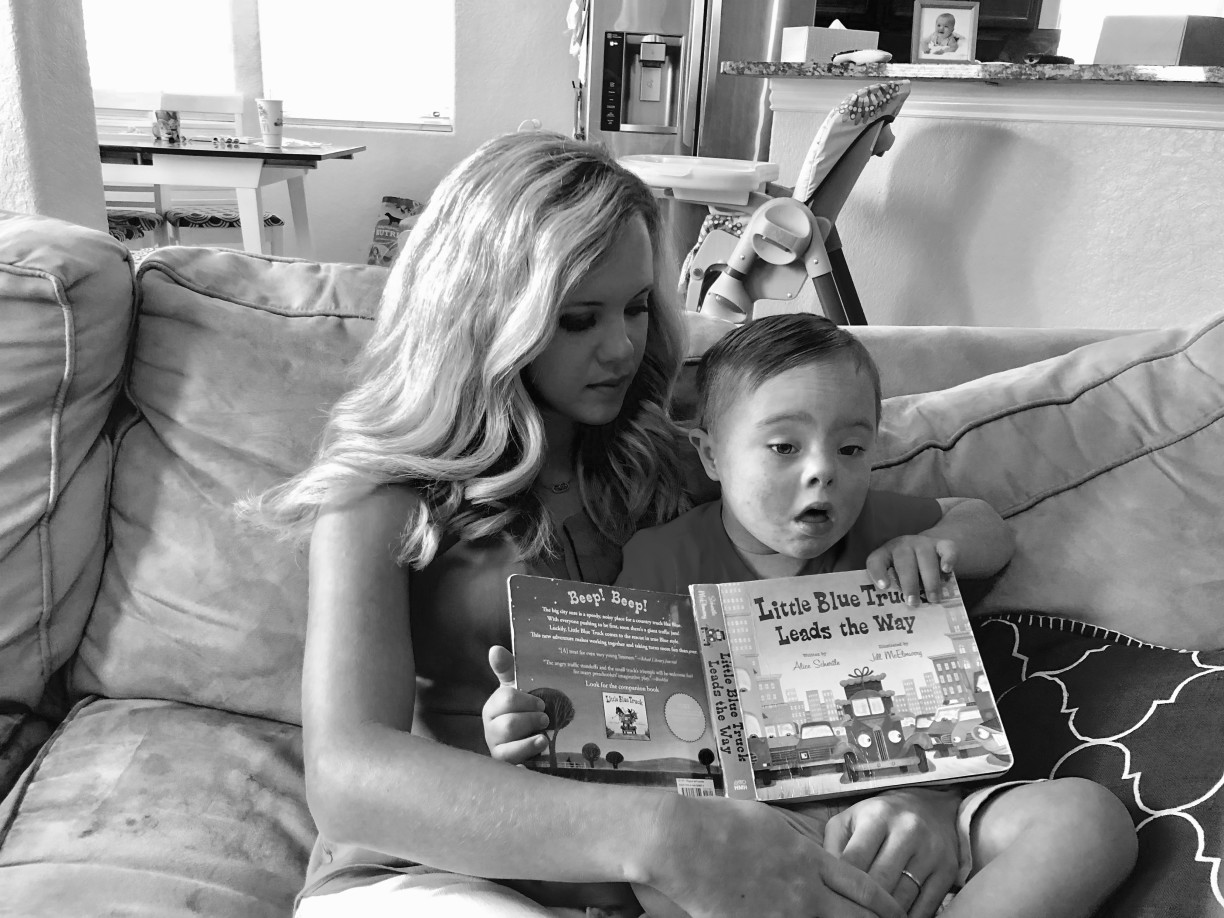
I woke up this morning with a knot in my stomach. I was dreading taking my son in for a blood draw. He gets them every few months because they are recommended for kids with Down syndrome. Kids with Down syndrome are often more difficult to stick and this is the case for my son.
To be honest, I think he’s traumatized by them.
I walked into the office with a heavy heart, knowing he didn’t know what was coming. I told the staff he needed the phlebotomist best with kids. A woman with wild hair and a soft demeanor walked over.
She started touching my son’s arm—he knew immediately what would happen next.
He screamed and cried. I stretched my body over him, using all my strength to hold down an arm with one hand while gently touching his horrified red face with the other. I tried to whisper reassurances—that it would be over soon when in reality I didn’t know how long it would last.
I was relieved when I finally saw the blood flowing. It was over.
Or so I thought.
After buckling him in his stroller to go, a group of women came back into the room with a solemn look. They needed more.
I thought my parent heart would stop beating right there. I unbuckled my sweet three-year-old again as he said, “No, no, no”. More tears fell as a different woman started to dig into his untouched arm. I lost it. My strength melted down my face, as my son and I engaged in a chorus of wailing.
I left weak in the knees. But because I’m a parent of a child with a disability, because my other son was born with complex medical needs, because we have been through worse, I left the hospital thinking. . . at least.
I know these are the two words you shouldn’t say to someone going through a hard time. Yet, I was saying them to myself.
At least it’s not surgery, chemo, or dialysis.
But what is there to gain by not acknowledging our own hard? When we rate our pain versus our neighbor’s, we only stand to become less empathetic.
My son’s blood draw days are his hardest days of the year, and therefore mine.
So, just like I’m not going to say “at least” to others, I’m not going to do it to myself either.
Today I am tired. Today I saw the dark side of my son’s disability. Today, I own my humanness.
Tomorrow, the sun will rise again and I will look up. The broadened perspective I have as a parent of a child with special needs will return with the morning rays. But today, I’m spent.
Read why you shouldn’t say at least to hurting people
*Behind the post- I hope this post doesn’t leave you feeling down. I know inspirational messages sell better. They certainly make me feel better. But some days- some days are just hard. Anderson ended up playing not too long after we got home. But I just couldn’t pull myself up. I am emotionally and physically exhausted from it all. Not all pain is equal. It just isn’t. This does not rank up there with what my friends have to go through. But it was still difficult for him and for me. Does that mean I’m going to dwell on it? No. Tomorrow will be new. This isn’t a day that will carry. This isn’t a surgery or a chronic illness and hopefully, the blood work comes back clean. This was a singular hard day. I realize that. I also realize I learn things in the hard days.
Since you went the extra step in clicking the link to this post- I want to share with you something from Walter Bruggerman in “The Spirituality of the Psalms” which profoundly changed my faith walk:
“The gain in this for the study of the Psalms is that it shows how the psalms of negativity, the complaints plaints of various kinds, the cries for vengeance and profound penitence are foundational to a life of faith in this particular God. Much Christian piety and spirituality is romantic and unreal in its positiveness. As children of the Enlightenment, we have censored and selected around the voice of darkness and disorientation, seeking to go from strength to strength, from victory to victory. But such a way not only ignores the Psalms; it is a lie in terms of our experience. Brevard S. Childs is no doubt right in seeing that the Psalms as a canonical hook is finally an act of hope. But the hope is rooted precisely in the midst of loss and darkness, where God is surprisingly present.” Walter Brueggemann. Spirituality of the Psalms (Facets) (Kindle Locations 52-54). Kindle Edition.






